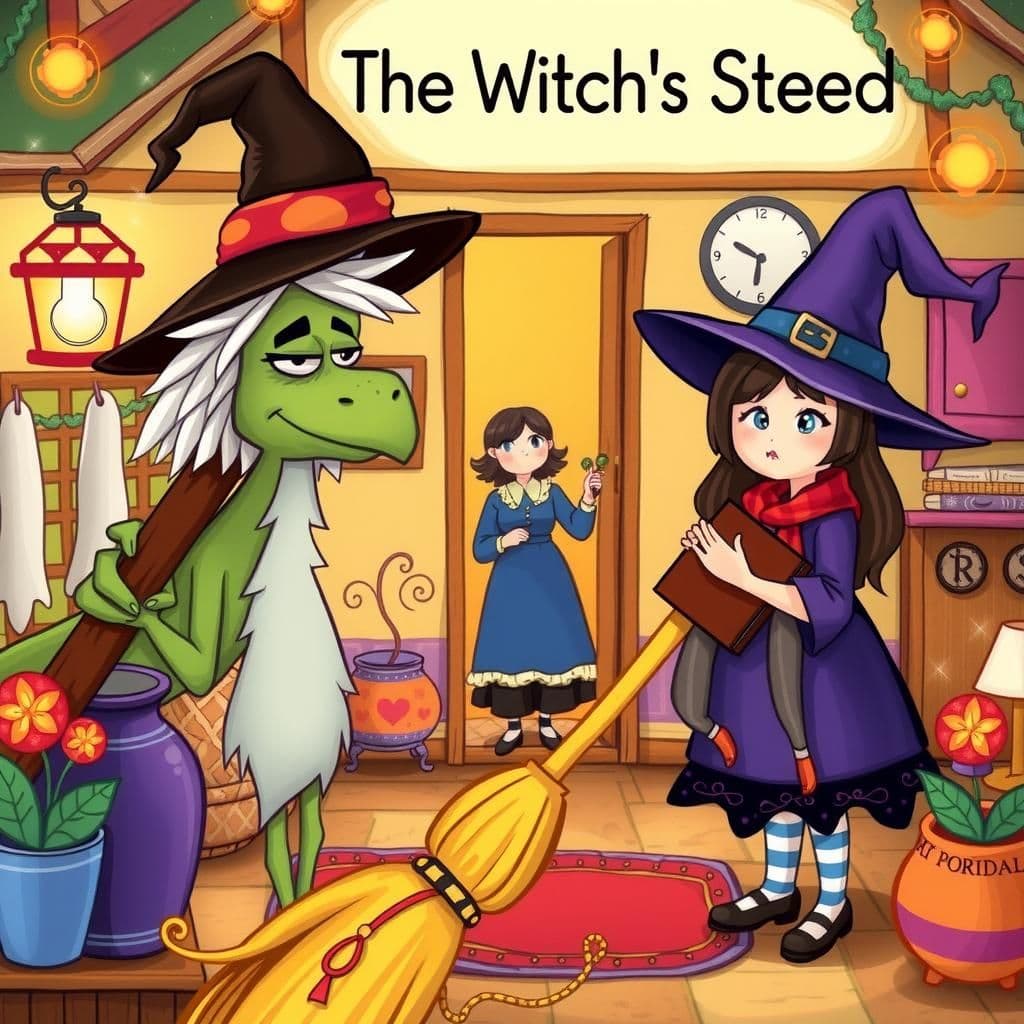The Witch's Steed
In "The Witch's Steed," an entertaining moral story, a broomstick serving a witch feels degraded by its role and expresses dissatisfaction. The witch humorously offers to elevate its status by introducing it to a housewife, prompting the broomstick to question the intellectuality of her hands, only for the witch to clarify that she was referring to the intellect of the housewife's husband. This short moral tale highlights the lessons learned from stories about self-worth and perspective.

Reveal Moral
"The story highlights the irony of misplaced pride, showing that true intellect may not always be where one expects it to be."
You May Also Like

A Protagonist of Silver
In "A Protagonist of Silver," a Member of a governmental body delivers a heartwarming moral speech to fellow financiers, framing their vested interests in silver mining as a noble cause against the government's recent decision to undermine the metal. This grand rhetoric inspires a rare moment of solidarity, prompting the Members to leave the hall, marking a significant action reminiscent of simple moral stories that highlight the importance of unity and purpose.

The Bear and the Fox
In the short fable "The Bear and the Fox," a boastful Bear claims to be the most philanthropic animal, asserting he respects humans so greatly that he won't even touch their dead bodies. The clever Fox counters this claim, suggesting it would be far more virtuous for the Bear to eat the dead rather than prey on the living. This well-known moral story highlights the true nature of philanthropy in a humorous and thought-provoking manner.

The Fisherman Piping
A skilled fisherman, hoping to attract fish with his flute, finds his melodic efforts fruitless as the fish remain unresponsive. Frustrated, he casts his net without music and catches a great number of fish, which begin to leap joyfully. This short moral story highlights the irony of how the fish chose to dance only after he stopped playing, reflecting the theme often found in moral stories for class 7 about the unpredictability of behavior and the nature of desire.